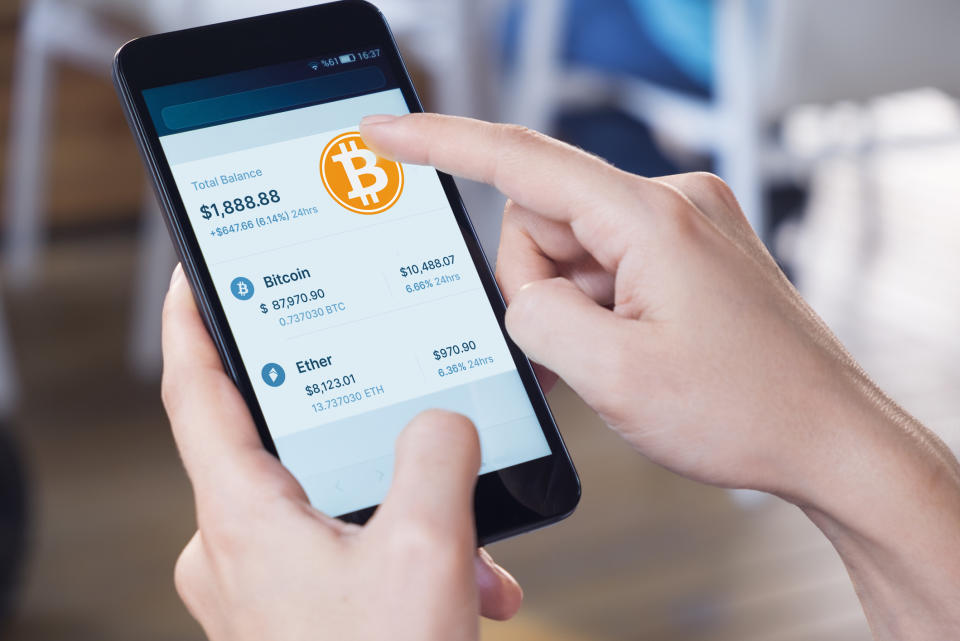Should You Buy Bitcoin While It’s Less Than $70,000?

Since the start of 2023, Bitcoin (CRYPTO: BTC) has been one of the best assets to own. Its price has soared roughly 300% during that time (as of June 14), a better gain than the 69% rise of the Nasdaq Composite Index.
But it’s been a roller coaster since Bitcoin hit its all-time high in March. As of this writing, the top cryptocurrency is off 11% from that peak.
Should investors consider buying Bitcoin while it’s trading for less than $70,000?
Bear case
Perhaps the most obvious argument against Bitcoin is that it may be banned in the U.S., just as it was in China. Others speculate that computational advancements, whether from artificial intelligence or quantum computing, might crack Bitcoin’s cryptographic structure.
These are all valid points. And the longer the network is around and gains in popularity, greater those risks might become.
Bull case
Understanding the bear case is critical to gaining a thorough perspective about an asset. But I believe that Bitcoin’s bull arguments hold more weight.
Spot exchange-traded funds have introduced more capital to the mix by making it easier to buy Bitcoin. But these funds, approved by the Securities and Exchange Commission in January, also put a stamp of legitimacy on the crypto. When we look back on this event years down the road, we’ll probably see it as a seminal moment when Bitcoin officially arrived.
In April, Bitcoin underwent another halving, an event that happens roughly every four years and that cuts the new supply of coins entering the market in half. This has always been a catalyst for Bitcoin. Bullish investors expect that over the next 12 to 18 months, Bitcoin can reach a new all-time high.
And investors should think about what makes Bitcoin unique in the first place. It is often compared to gold. The precious metal has been viewed as a top store of value for thousands of years. However, Bitcoin’s eventual total supply is mathematically capped, and there will never be more than 21 million coins. And Bitcoin is easier to store and transport than gold, while also possessing easier transactional value.
However, Bitcoin’s current market cap of $1.3 trillion is just 8% of gold’s $15.7 trillion. In a world that is becoming increasingly digital, tech-enabled, and connected, I think it’s reasonable to expect that the top crypto can one day fetch the same valuation as gold. This would imply 1,100% upside.
Bitcoin is also special because it’s an alternative to the debt-fueled and inflationary fiscal and monetary policies that have characterized the U.S., as well as other countries, in recent decades. Many economists have argued that this path isn’t sustainable.
If more people start to buy those arguments they may very well want to own an asset like Bitcoin that isn’t controlled by a central bank. As fiat currencies continue to lose value over time, Bitcoin, which has a fixed supply cap, might keep rising in value as it has in the past.
Buying some of this cryptocurrency at under $70,000 looks like a smart decision.
Should you invest $1,000 in Bitcoin right now?
Before you buy stock in Bitcoin, consider this:
The Motley Fool Stock Advisor analyst team just identified what they believe are the 10 best stocks for investors to buy now… and Bitcoin wasn’t one of them. The 10 stocks that made the cut could produce monster returns in the coming years.
Consider when Nvidia made this list on April 15, 2005… if you invested $1,000 at the time of our recommendation, you’d have $808,105!*
Stock Advisor provides investors with an easy-to-follow blueprint for success, including guidance on building a portfolio, regular updates from analysts, and two new stock picks each month. The Stock Advisor service has more than quadrupled the return of S&P 500 since 2002*.
*Stock Advisor returns as of June 10, 2024
Neil Patel and his clients have no position in any of the stocks mentioned. The Motley Fool has positions in and recommends Bitcoin. The Motley Fool has a disclosure policy.
Should You Buy Bitcoin While It’s Less Than $70,000? was originally published by The Motley Fool

